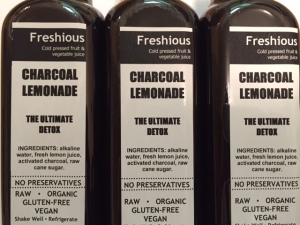
Like many of you I’m interested in the science of good nutrition. In general, I’ve come to be pretty skeptical of the nutritional literature, as so many studies seem to follow the same trajectory that we see with drug studies: Trivial changes in non-relevant outcomes, a failure to consider the results in the context of the accumulated scientific evidence and often, significant conflicts of interest. What’s worse, you can’t blind a dietary evaluation. So we’re left to dig through observational studies and try to sort out correlation from causation. It’s little wonder that so many consumers are confused about the basics of healthy eating. It isn’t helped with the plethora of gurus offering their own solution. Many believe that vitamins supplements are both beneficial and routinely necessary (they are not) and that the latest “superfood” is all that’s standing between themselves and immortality. But nutritional science is important, and I’m always pleased when patients initiate discussions about weight loss, or just improving their dietary habits. After all, obesity is a significant risk factor for an array of chronic illnesses. Improving our dietary patterns should pay off with improved health.. A regular challenge I face is that my patient that has already decided to use a highly restrictive weight loss plan in order to achieve a specific weight loss goal. I always caution them to take a long-term view. Weight loss is easy. Maintaining that loss is the challenge. Most “diets” fail. So I’m critical of useless interventions (like food intolerance blood tests) or faddy diets (like going gluten-free) with the hope of easy weight loss. At its core, weight loss and weight maintenance comes down to caloric balance. Permanent weight loss requires permanent dietary changes. And how we spend our “calories” matters.
Over the past few months I’ve seen a few friends and colleagues announce that they’ve decided to transform their diet, lose weight, and “eat clean”. When I asked what was “clean” food, no-one seems to have a consistent answer. The most common response was that “eating clean” meant cutting out processed foods. But to others, eating clean meant avoiding meat, anything with GMOs, wheat and sometimes milk. It seemed to mean something different to everyone. It reminds me a bit of Humpty Dumpty in Through the Looking Glass:
‘When I use a word,’ Humpty Dumpty said, in rather a scornful tone, ‘it means just what I choose it to mean — neither more nor less.’
Is “eating clean” just a faddish buzzword? There are a number of personalities competing in the “eating clean” dietary space. The pioneer seems to be Tosca Reno, who has the Eat-Clean Diet and about a dozen related books based on the same idea. But she’s not alone, as there are several other books with related names, including Terry Walters with her “Clean Food” books. Success breeds competition, it seems. Given Reno’s book appears to be the most popular, I’ll take her plan as the template. She outlines the principles of how she defines eating clean in her 2007 book. I’ve added my comments after each principle. Continue reading →







You must be logged in to post a comment.